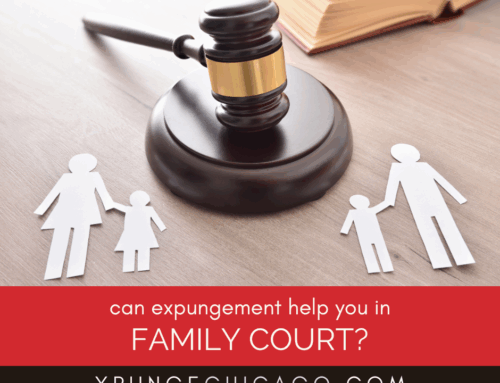
Getting your criminal record expunged in Illinois can be a pivotal step towards clearing your name and opening up new opportunities. However, navigating the expungement process can seem complex. With the right approach and legal assistance, you can effectively clear your record.
5 Tips to Help You Get Your Record Expunged in Illinois
Expungement offers a chance to erase parts of your criminal history that might be holding you back. This guide explains the following:
- Understanding expungement eligibility
- Gathering the necessary documentation
- Timing your application correctly
- Working with an expungement lawyer
- Following up on your expungement
Here’s a closer look at each.
Understanding Expungement Eligibility
In Illinois, understanding whether you can expunge your record is the first step toward clearing your criminal history. You’re typically eligible to expunge arrests, charges that were dropped, acquittals, and convictions that have been vacated. Your attorney will look at your charges and let you know which are eligible for expungement and which are not.
Related: Illinois expungement information
Gathering the Necessary Documentation
To apply for expungement, you will need to compile all relevant documents that portray the complete history of the cases you wish to expunge. This includes your full criminal record, any court documents, and legal paperwork that displays the outcomes of your cases. Accuracy and completeness of these documents are paramount; any missing or incorrect information can delay or jeopardize your expungement process. Your attorney can run a complete background check if you have difficulty getting your entire criminal record.
Related: Should you run your own criminal background check?
Working with an Expungement Lawyer
Hiring an experienced expungement lawyer can make the whole process smoother. An attorney familiar with Illinois expungement laws can guide you through the complex legal landscape, ensure all paperwork is filed correctly, and represent you in court if needed. Their expertise can be invaluable, especially in navigating any challenges that arise during the process.
Following Up on Your Expungement
After your expungement application is filed, it’s important to follow up to make sure that all relevant agencies have updated their records accordingly. Sometimes, even after a court has granted an expungement, discrepancies in the records can persist across different systems. Regular checks will help ensure that your record is clear and prevent future complications during background checks.
FAQ About Expungement in Illinois
Check out these commonly asked questions about the expungement process in Illinois. If you don’t see your question here, please call our office and we’ll find you the answers you need.
What Are the Costs Associated with Expungement?
The costs can vary depending on court fees and if you hire a lawyer. However, investing in legal assistance might save you money in the long run by increasing the likelihood of a successful expungement.
How Long Does the Expungement Process Take?
The duration of the expungement process in Illinois can vary widely but generally takes several months. This timeline can extend if the case is complex or if there are delays in the court system.
Related: 3 mistakes to avoid when you expunge your record in Illinois
Can Expungement Erase All My Criminal Records?
Expungement can erase many types of criminal records but not all. For example, certain serious offenses might not be eligible. Your attorney can help you understand which offenses you can expunge and which you can’t.
What Happens If My Expungement Is Denied?
If your expungement is denied, you may have options to appeal the decision. A lawyer can provide guidance on the best steps to take, including whether reapplying might be beneficial.
Do You Need to Talk to an Attorney About Expungement or Sealing?
If you’re tired of your criminal past coming back to bite you, we may be able to help. Call us right now at 847-920-4540 or fill out the form below so we can talk about your case.
Oops! We could not locate your form.















